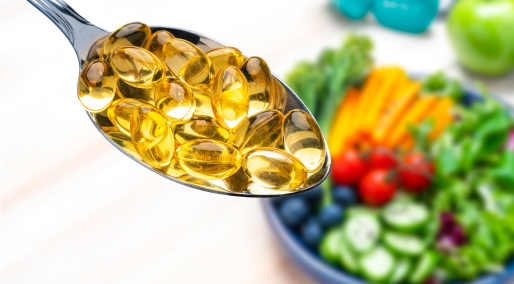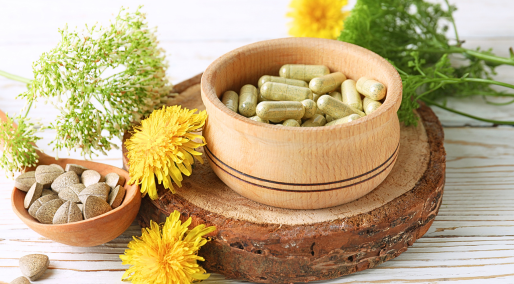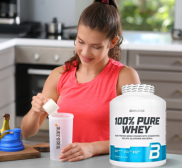- For the home
Health
- Bones and Joints
- Digestion and Healthy GI
- Essential Oils
- Fish Oil / Omega-3
- Healthy Sleep
- Heart and Cardiovascular System
- Immunity
- Liver
- MCT Oil
- Men
- Mind and Focus
- Minerals
- Pet Supplements
- Pro-Health Supplements
- Probiotics
- Senior
- Superfoods
- Urinary Tract
- Vitamins
- Vitamins for hair
- Vitamins for nails
- Vitamins for the skin
- Weight Management
- Woman
Healthy Diet
Herbs
Mother and Baby
Sport
Your Goal
Pet Supplements
Cosmetics
- Cosmetics for children
- Men's Cosmetics
- Unisex Cosmetics
- Women's Cosmetics
- Dezodoranty i perfumy
- Higiena jamy ustnej
- Kosmetyki akcesoria
- Kosmetyki dla dzieci2
- Kosmetyki do ciała
- Kosmetyki do higieny intymnej
- Kosmetyki do opalania
- Kosmetyki do pielęgnacji ust
- Kosmetyki do twarzy
- Kosmetyki do włosów
- Papier toaletowy / chusteczki
Nitric Oxide Boosters
(total products: 15)Nitric oxide supplements are supplements or foods that can increase the production or availability of nitric oxide (NO) in the body. Nitric oxide supplementation is a gas that is naturally produced by the body and plays an important role in regulating blood flow, blood pressure, and other physiological processes. Taking nitric oxide supplements is very important and worthy of consideration.
For the home
Health
Bones and Joints
Digestion and Healthy GI
Essential Oils
Fish Oil / Omega-3
Healthy Sleep
Heart and Cardiovascular System
Immunity
Liver
MCT Oil
Men
Mind and Focus
Minerals
Pet Supplements
Pro-Health Supplements
Probiotics
Senior
Superfoods
Urinary Tract
Vitamins
Vitamins for hair
Vitamins for nails
Vitamins for the skin
Weight Management
Woman
Healthy Diet
Herbs
Mother and Baby
Sport
Your Goal
Pet Supplements
Cosmetics
Cosmetics for children
Men's Cosmetics
Unisex Cosmetics
Women's Cosmetics
Dezodoranty i perfumy
Higiena jamy ustnej
Kosmetyki akcesoria
Kosmetyki dla dzieci2
Kosmetyki do ciała
Kosmetyki do higieny intymnej
Kosmetyki do opalania
Kosmetyki do pielęgnacji ust
Kosmetyki do twarzy
Kosmetyki do włosów
Papier toaletowy / chusteczki
New products
Promotions
Recommended products
Short expiration dates
Some common nitric oxide boosters include:
-
L-arginine: L-arginine is an amino acid that is used by the body to produce nitric oxide. It is often included in nitric oxide booster supplements.
-
Citrulline: Citrulline is another amino acid that can help increase nitric oxide production in the body.
-
Beets: Beets and beetroot juice contain high levels of nitrates, which can be converted into nitric oxide in the body.
-
Pomegranate: Pomegranate juice and extract have been shown to increase nitric oxide production and improve blood flow. Helps increase blood flow.
-
Garlic: Garlic contains compounds that can help increase nitric oxide production and improve cardiovascular health.
-
Cayenne pepper: Cayenne pepper contains capsaicin, which can help improve blood flow and increase nitric oxide production.
-
Dark chocolate: Dark chocolate contains flavonoids, which can help improve blood flow and increase nitric oxide production.
Nitric oxide boosters are often used by athletes and bodybuilders to improve exercise performance, as well as by people with cardiovascular issues or other health concerns related to blood flow and blood pressure. However, it is important to speak with a healthcare provider before taking any supplements, as they may interact with medications or have potential side effects.
Benefits of nitric oxide supplements
There are several potential benefits associated with nitric oxide boosters:
-
Improved cardiovascular health: Nitric oxide is a key regulator of blood flow and blood pressure, and boosting its production can help improve cardiovascular health and reduce the risk of heart disease. Helps fight high blood pressure.
-
Increased exercise performance: Nitric oxide boosters have been shown to improve exercise performance by increasing blood flow to the muscles and reducing fatigue.
-
Faster recovery: Nitric oxide boosters can help improve circulation and oxygen delivery to the muscles, which can aid in recovery after exercise or injury. Relieves muscle soreness.
-
Reduced inflammation: Nitric oxide has anti-inflammatory properties and may help reduce inflammation throughout the body.
-
Improved sexual function: Nitric oxide plays a key role in sexual function by promoting blood flow to the genitals. Nitric oxide boosters may help improve erectile function and sexual performance.
-
Enhanced cognitive function: Nitric oxide has been shown to improve cognitive function by increasing blood flow to the brain and promoting the growth of new brain cells.
Disadvantages of using a nitric oxide booster
While dietary supplements can have potential benefits, there are also some potential disadvantages and side effects associated with their use. Here are a few to consider:
-
Digestive issues: Some people may experience digestive issues such as bloating, gas, or diarrhea when taking amino acid l arginine. Long-term use can be a problem for liver function.
-
Low blood pressure: Nitric oxide is a vasodilator, which means it can cause blood vessels to widen and lower blood pressure. This can be problematic for people with already low blood pressure, or for those taking medications that also lower blood pressure.
-
Interactions with medications: Amino acids may interact with medications such as blood thinners, erectile dysfunction drugs, and blood pressure medications. It is important to speak with a healthcare provider before taking any supplements, especially if you are taking medications.
-
Allergic reactions: Some people may be allergic to ingredients in nitric oxide boosters, such as L-arginine, and experience allergic reactions such as hives, swelling, or difficulty breathing.
-
Negative impact on health conditions: People with certain health conditions, such as liver or kidney disease, should avoid nitric oxide boosters or use them only under the guidance of a healthcare provider, as they may exacerbate these conditions.
How to supplement with nitric oxide booster
There are several ways to supplement with nitric oxide boosters:
-
Dietary sources: You can increase your intake of nitric oxide-boosting foods such as beets, spinach, arugula, kale, and dark chocolate. These foods contain nitrates, which can be converted into nitric oxide in the body.
-
Nitric oxide booster supplements: You can take supplements that contain ingredients such as L-arginine, L-citrulline, or beetroot extract, which are known to boost nitric oxide production in the body. However, it is important to speak with a healthcare provider before taking any supplements, as they may interact with medications or have potential side effects.
-
Exercise: Regular exercise can also help boost nitric oxide production in the body. High-intensity interval training (HIIT) and resistance training have been shown to be particularly effective.
-
Sunlight: Exposure to sunlight can also boost nitric oxide production in the body, as the skin uses UV light to produce nitric oxide.
It is important to note that while nitric oxide boosters can have potential benefits, more research is needed to fully understand their effectiveness and safety. Additionally, it is important to speak with a healthcare provider before taking any supplements, as they may interact with medications or have potential side effects.


















